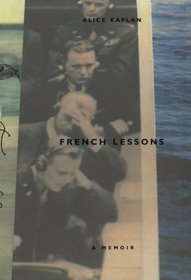Search -
French Lessons : A Memoir
French Lessons A Memoir
Author:
Brilliantly uniting the personal and the critical, French Lessons is a powerful autobiographical experiment. It tells the story of an American woman escaping into the French language and of a scholar and teacher coming to grips with her history of learning. Kaplan begins with a distinctly American quest for an imaginary France of the inte... more »
Author:
Brilliantly uniting the personal and the critical, French Lessons is a powerful autobiographical experiment. It tells the story of an American woman escaping into the French language and of a scholar and teacher coming to grips with her history of learning. Kaplan begins with a distinctly American quest for an imaginary France of the inte... more »
ISBN-13: 9780226424187
ISBN-10: 0226424189
Publication Date: 11/1/1993
Pages: 232
Rating: 1
ISBN-10: 0226424189
Publication Date: 11/1/1993
Pages: 232
Rating: 1
3 stars, based on 1 rating
Publisher: University Of Chicago Press
Book Type: Hardcover
Other Versions: Paperback
Members Wishing: 1
Reviews: Amazon | Write a Review
Book Type: Hardcover
Other Versions: Paperback
Members Wishing: 1
Reviews: Amazon | Write a Review
Genres:




